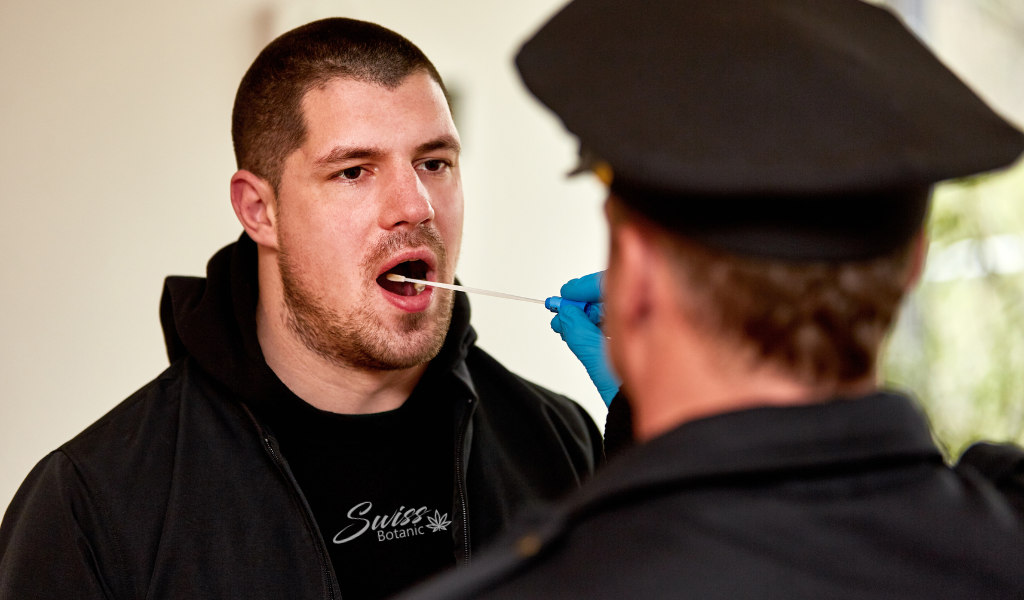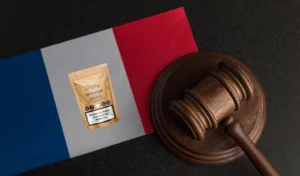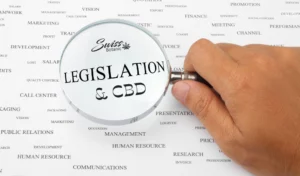The link between CBD and police tests raises questions. This in-depth guide explores the relationship between the consumption of CBD flowers consumption, roadside checks and legal implications. Understanding the mechanisms of saliva testing, CBD detection, regulations in France and advice for drivers is essential.
Understanding roadside drug testing and CBD
Saliva roadside tests are a method frequently used by law enforcement agencies to detect psychoactive substances, mainly THC. However, CBD, derived from hemp with a legal THC content (<0.3%), raises questions about its detection. During these tests, officers look for the presence of THC, the psychoactive compound in cannabis responsible for its high. CBD, although derived from the same plant, has no psychoactive effects and complies with French legislation. Nevertheless, the possibility of false-positive results raises questions. Understanding the detection mechanisms and legal implications for CBD users is crucial to avoid undesirable consequences during roadside checks.
How do saliva tests work?
Saliva THC tests work by detecting the presence of tetrahydrocannabinol (THC), the main psychoactive compound in cannabis, in a person’s saliva. Here’s how the process usually works:
Sample collection: A saliva sample is taken using a special swab or spatula. This is often done by rubbing the inner surface of the cheek or tongue.
Rapid analysis: Some saliva tests are designed to provide rapid results in the field. The sample is usually analyzed immediately using a test strip or similar device.
Chemical reaction: The test strip contains specific chemicals that react with THC. If THC is present in the saliva, a colorimetric chemical reaction occurs, generating a line or color change on the strip.
Interpretation of results: The presence of a specific line or color indicates a positive result. No reaction suggests a negative result.
It’s important to note that most saliva tests don’t distinguish specifically between THC and other cannabinoid compounds, such as CBD. Therefore, a positive saliva test does not necessarily mean recreational cannabis use, as CBD, although present in hemp, does not have the psychoactive effects of THC. However, the quality of the CBD product and its compliance with legal standards may influence the test results.
Is CBD detectable?
Although CBD is legal in France it is important to note that saliva tests can sometimes show a positive result. This detection may be due to the presence of traces of THC in the CBD product. Although THC levels in legal CBD products are below 0.3%, variations in product quality and extraction processes can result in minimal THC residues.
CBD consumers need to be aware of these nuances, especially when facing roadside checks. Although the legislation allows CBD with low THC levels, test sensitivity can vary, and positive results can sometimes occur. It is therefore essential to choose high-quality CBD products from reliable sources that comply with legal standards, to minimize the risk of THC detection in saliva tests. Transparency on the origin and composition of CBD products is thus becoming crucial for consumers wishing to avoid undesirable positive results at roadside checks.
Legality of CBD and implications for drivers
CBD regulations in France are clear: THC levels below 0.3% are considered legal. However, the detection of THC in roadside drug tests can have consequences for drivers. Even if CBD is permitted, THC-positive results can raise concerns.
The implications for drivers often depend on local circumstances and laws. In the event of a positive test, drivers may face penalties such as fines, license suspension or other legal measures. It’s therefore crucial for CBD users who drive to understand these implications, choose quality CBD products with THC levels that comply with legislation and be aware of possible variations in road test results. This ensures responsible use of CBD while avoiding unwanted legal complications.
CBD regulations in France
French legislation allows CBD with a THC content of less than 0.3%, making it a legal option for consumers. However, it is imperative to choose products that comply with standards to avoid legal problems related to driving with CBD. Whether it’s CBD flowers, CBD oils or other derivatives, regulatory compliance is essential to ensure legally safe use. Consumers need to pay close attention to product quality, origins and THC levels to ensure full compliance with regulations. This in-depth understanding of legislation contributes to a responsible CBD experience that complies with French laws.
Consequences of a positive CBD test
Testing positive for THC during a roadside check may result in legal penalties, depending on the circumstances and local legislation. Drivers should be aware of the potential consequences of a positive result, even if they consume legal CBD with THC levels below 0.3%. It is advisable to know the specific laws of the region where you are driving and to adopt responsible practices. In the event of a positive test, transparent communication with the authorities can sometimes mitigate sanctions. However, it’s crucial to understand the legal implications to avoid potential problems and ensure safe, compliant driving.
Tips for CBD users on roadside checks
Caution is essential for CBD users considering driving. Although CBD with a THC content of less than 0.3% is legal in France, we strongly advise against driving immediately after consumption. The individual effects of CBD can vary, and it’s difficult to predict how each person will react. It is advisable to take precautions, such as waiting a reasonable amount of time after consumption, before driving. In the event of a positive test, cooperation with the authorities is essential. By following these tips, consumers can minimize risks and contribute to road safety.
Precautions to take before driving
CBD consumers should check the composition of their products to ensure the correct THC content. Avoiding driving immediately after consumption is a preventive measure. In the event of a positive test, knowing your rights is essential.
What should I do if I test positive?
In the event of a positive test, the key is to remain calm and cooperative. CBD consumers need to know their rights, including the right to consult a legal professional. It is advisable not to admit guilt immediately and to seek legal advice before taking any action. Some specialized lawyers can help navigate the legal complexities surrounding CBD-positive tests. Cooperating with the authorities while protecting your rights is the best approach. When faced with such a situation, it’s essential to stay informed, seek professional legal advice and take appropriate steps to ensure a fair outcome.
In conclusion, this guide offers an in-depth overview of CBD-related police testing in France. It provides crucial information on saliva testing, the legality of CBD, legal implications and practical advice for consumers. A clear understanding of these aspects is essential for responsible, legal CBD consumption.



